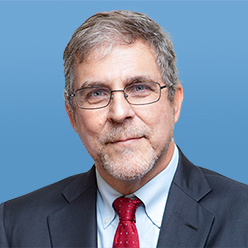The tragic death of four U.S. Army Special Forces troops in Niger has put a searing spotlight on this dusty corner of the war on terrorism.
On the morning of Oct. 4, a team of 12 Americans and 30 Nigeriens were conducting a patrol of the village of Tongo Tongo, in search of a fugitive Islamic State group recruiter. As they left the village, the soldiers were waylaid by a force of 50 Islamic State group militants. In the ensuing firefight, four Americans and five Nigeriens were killed. It is unclear at this time how many enemy troops were slain. The incident has prompted an FBI investigation and spurred calls for a congressional inquiry.
In part, the furor over the firefight is mere political opportunism, fomented by criticism of how President Donald Trump informed the families of the fallen. However, this type of grandstanding has the possibility of disrupting what are important operations in the struggle against violent Islamist extremism in North Africa. Politicizing combat does not make us safer.
It may have come as a surprise to most Americans to learn that the U.S. has 800 troops in Niger, a landlocked Saharan nation south of Libya and Algeria. But as Chairman of the Joint Chiefs of Staff Gen. Joseph Dunford aptly put it, "we're there because ISIS and al-Qaida are operating in that area."
Since the Sept. 11, 2001 attacks, the United States has consistently pursued a forward presence strategy against terrorism. The concept, enacted under three presidents, is defense in depth – defeating terror threats abroad before they come to the U.S. mainland. This strategy has been operationalized in large-scale interventions such as in Afghanistan and Iraq, but also in notable hot spots like Yemen, Syria and across North Africa. Basically, American troops, intelligence operatives, civilian aid workers and others involved in the counterterrorism effort go wherever the terrorist threat manifests itself. And as violent Islamist groups evolve and adapt to shifting circumstances, the United States must as well.
Radical groups have long been established in the ungoverned spaces of the Sahel region, which stretches from Senegal to Sudan. They include al-Qaida in the Islamic Maghreb, various affiliates of the Islamic State group and Nigeria's Boko Haram. France has played a leading role in combating these threats, with 4,000 troops operating in the region. (The delay in French aircraft coming to the aid of the embattled U.S./Nigerien patrol near Tongo Tongo is one of the issues under investigation.) The European Union is currently building a 10,000 troop counterterrorism force for the Sahel. And Morocco has been leading the intellectual struggle against radical Islamic ideology in west Africa with the Mohammed VI Institute for the Training of Imams and other important initiatives.
The American role has been consistent with the strategy of supplying critical capabilities to local forces, rather than deploying a large-scale troop presence. U.S. advisers, frequently special forces, engage in training, advice and assistance missions. Host nations also receive intelligence support, supplies and other means of building partner capacity. In general, U.S. troops stay out of the line of fire, and the infrequency with which we take casualties is a testament to the success of the model.
However, the American people cannot expect these types of dangerous operations to be casualty-free. Our country is at war and, unfortunately, despite the best efforts of everyone involved, good people die. Our coalition partners, who provide most of the front-line manpower, bear that burden far more than the U.S. does, and since they are fighting on their home ground they better understand the risks. Americans by and large have no idea where our troops are operating on a daily basis, thus it is more jarring to them when things go wrong.
The proper response to the firefight at Tongo Tongo is not to ramp up politics, investigations and recriminations. It is important to understand what went wrong, less to lay blame than to profit from the lessons learned. Another beneficial outcome would be if Americans became better informed about the many battlefronts of the war on terrorism, and the critical role being played by diverse groups of troops and civilians in the counterterrorism arena. This is a complex, long-term struggle in which some Americans tragically will make the supreme sacrifice. It dishonors the dead to bury them draped in political talking points.
